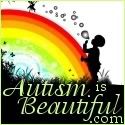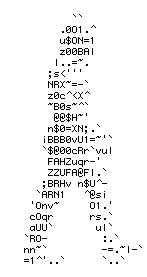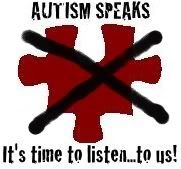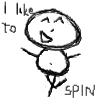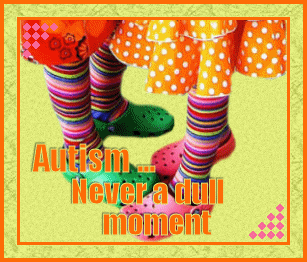If someone feels they are an Indigo and they believe in this concept, that is one thing. I don't agree, but who am I to judge? However, if your beliefs are in any way detrimental to children, I take issue. Major issue. Here is the start of my concerns over the Indigo concept.
From here, it is suggested that "vibrations" will interrupt seizures, among other startling claims:
From vibrations sounded mentally that will interrupt seizures and stabilize brain function to attitude adjustments which free mind and body from long-standing, stagnation-producing concepts to the mental and emotional state of the comatose, the research is astounding and deserves to be noted, explored, and utilized more widely.
This site offers ill-advice for a febrile seizure:
If a seizure occurs, keep your child upright if possible and make sure she is breathing well. Reassure her. If she vomits, turn her on her side.
As a mother of a child who has seizures, this is awful advice. We have always been told to immediately put our child on a safe, flat surface (it would be impossible, at least during my child's grand-mal/tonic-clonic seizures to sit her up). If she begins to vomit, we turn her slightly on her side so she doesn't choke. Here is what NINDS advises:To prevent accidental injury, the child should be placed on a protected surface such as the floor or ground. The child should not be held or restrained during a convulsion. To prevent choking, the child should be placed on his or her side or stomach.
I fear that there may be children out there who are not being properly treated for seizures (thankfully, it seems Jenny does take her son's seizures seriously and he is treated medically for them, but others may not be so wise). It seems likely that a child diagnosed with ADHD, autism bipolar, etc. whose parents feel s/he is a Crystal, may not be afforded all available help or treatments. There are people who, despite the best efforts (at alternatives like talk therapy), they need antidepressants or anti-anxiety medications. Without, they can be at risk for suicide or other negative outcomes.
As I read more into the Indigo concept, I couldn't help but draw even more similarities to Scientology. The dangers that have come from Scientology's stance against all things psychiatric have been widely, and tragically, documented. I came upon this, and it would seem that New Earth Magazine looks highly upon L. Ron Hubbard (founder of Scientology):As an aside, L.Ron Hubbard of Scientology says that the more they can avoid the indoctrination of the school system, the better off they are in this world.
I think extreme caution has to be used when a group disregards medically-accepted diagnoses and treatments. They continually dispute scientific studies, promote conspiracy theories, and regurgitate the same information and sound bites over and over again. When this group storms Washington, D.C. and promotes an ongoing campaign to alter the (historically substantial and successful) vaccine system in the U.S., it is concerning. When this same group and its bombshell messenger employs tactics in an attempt to oust a government official, we need to take note. When they are given nearly free range on the media, to push their propaganda, we cannot sit idly by.
I've mentioned my concerns previously with regard to Ms. McCarthy and her message. Personally, I have nothing against her as a human being. I can relate to her, when she speaks of her son's seizures. However, the reality I face is that there is a startling lack of services for teen and adult autistics. My daughter is still rather young, and I do have time. However, I know plenty of other families and individuals who are in great need of those lacking services NOW. And, it's clear that unless major initiatives are made soon, we'll face the same issues with our daughter in a few years.
Jenny, despite what some will claim, has done nothing to further this effort. She continues the stigma that autistics have been "kidnapped" or her personal favorite, "hit by a bus." She focuses on recovery, telling the world she doesn't know of any adult autistics (so why bother creating any new programs?). Her loud cries that she would never vaccinate a child again and that she feels you should alter a proven vaccine program, is risky.
I worry for what the future will bring my child--will she have proper assistance? paths to independence? acceptance? And now I fear if I can protect her from outbreaks of whooping cough, measles, and the like. It's clear that this disturbing message will sink even further from my goals. We have no time to waste, to get programs created and funded for teen and adult autistics. This is all a huge distraction, one that unfortunately, all of the public is listening to.
You now know where this is headed. There is nothing funny here at all.

6/11/08
Warning: This Is Nothing To Laugh At
4/18/08
FDA, Prozac, & Children with Autism
 The FDA has granted "Fast Track" designation for a new orally disintegrating tablet of fluoxetine (Prozac), for use in children with autism.
The FDA has granted "Fast Track" designation for a new orally disintegrating tablet of fluoxetine (Prozac), for use in children with autism.
This trial will be the first under Autism Speaks' Clinical Trials Network (CTN):
Neuropharm Group plc (AIM: NPH), a speciality pharmaceutical company focused on neurodevelopmental disorders, is pleased to announce that the US Food and Drug Administration (FDA) has granted Fast Track designation for Neuropharm’s program to develop NPL-2008 in the treatment of Autism Disorder.NPL-2008, a new orally disintegrating tablet of low-dose fluoxetine, is currently in Phase III development for the treatment of the core symptom of repetitive behaviours in patients five years of age or older with Autistic Disorder.
On its website, www.fda.gov, FDA states: “Because fast track products are intended to treat serious or life-threatening conditions and must demonstrate the potential to address unmet medical needs for such conditions, an NDA for a product in a fast track development program ordinarily will be eligible for priority review and FDA may consider for review, portions of a marketing application before the complete NDA is submitted. Fast Track is intended to facilitate development and expedite review of drugs to treat serious and life-threatening conditions so that an approved product can reach the market expeditiously.”
The NPL-2008 program received Orphan Drug Designation from FDA in 1999, giving the product the potential for seven years of market exclusivity on receipt of regulatory approval. In addition the FDA Office of Orphan Drug funded a clinical study in children and adolescents at Mount Sinai School of Medicine in New York followed by a second study in adults.
Neuropharm’s current Phase lll study (SOFIA) underwent Special Protocol Assessment by FDA in 2007. The study is currently ongoing at 17 sites in the US in collaboration with Autism Speaks, the US advocacy organization, and its Clinical Trials Network of expert investigators. The results from this randomised, double-blind trial in more than 120 child and adolescent patients with Autistic Disorder will form part of the NPL-2008 New Drug Application, which is targeted for submission to FDA in Q4 2008.
Robert Mansfield, Neuropharm’s CEO, commented: “We are delighted to announce that FDA has granted Fast Track designation for our program. The point was made earlier this month on World Autism Awareness Day that more children will be diagnosed with autism this year than with diabetes, cancer and AIDS combined. Fast Track designation emphasises the importance we believe should be accorded to this condition.”
SOFIA is the first industry-sponsored trial for Autism Speaks' Clinical Trials Network (CTN), and will include over 120 children and adolescents with autism enrolled across the U.S. at participating CTN sites. The study is evaluating the efficacy of Neuropharm's new melt-in-the-mouth formulation for the treatment of repetitive behaviors in autism. This study will be a crucial part of an application to receive an autism indication for this formulation of fluoxetine.
I have no doubt that for those parents whose children are presently taking Prozac or who are currently considering it, such a trial will be a relief. With the majority of medications, trials are typically done on adults. The effects of the drugs on those under 18 are often unknown (and, especially unknown when it comes to individuals with autism). Bad reactions in the pediatric community only come to light once a serious side-effect has occurred.
Prozac was approved for pediatric use in 2003 and is generally well-tolerated. A trial focused on a pediatric autistic population (for both efficacy and side-effects) will benefit many. A dissolving tablet will be much easier for children to tolerate, as well.
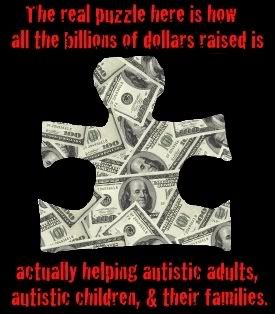





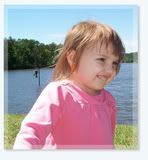

 This Way of Life
This Way of Life

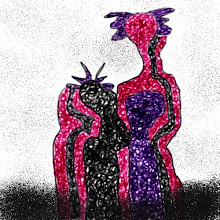

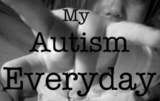





 "Autism is a way of being. It is pervasive; it colors every experience, every sensation, perception, thought, emotion, and encounter, every aspect of existence. It is not possible to separate the autism from the person."
- Jim Sinclair
"Autism is a way of being. It is pervasive; it colors every experience, every sensation, perception, thought, emotion, and encounter, every aspect of existence. It is not possible to separate the autism from the person."
- Jim Sinclair


